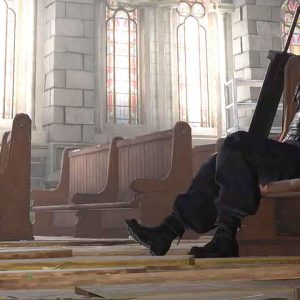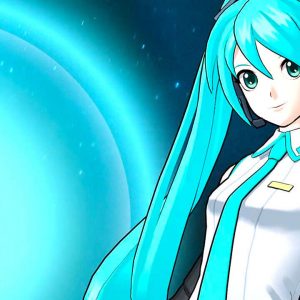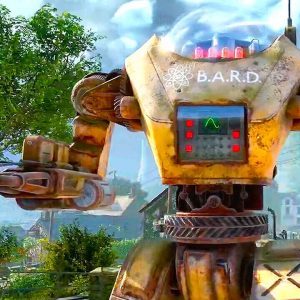Throughout “Remembrance,” the premiere episode of CBS All Access’s Star Trek: Picard, there was one thought I couldn’t escape: It’s great to have the captain back.
For Star Trek fans like me, Sir Patrick Stewart’s Captain Jean-Luc Picard embodied Star Trek creator Gene Roddenberry’s vision of a bright, optimistic future. Picard stood as a pillar of the best of humanity–strong and decisive when he needed to be, diplomatic and empathetic whenever possible, and always operating on a strong moral compass and a vast respect for life. While Kirk, Spock, and Bones were the vision of Star Trek for older viewers, it was Picard and his crew on Star Trek: The Next Generation that made me a lifelong Star Trek fan, as they suggested a future in which humanity could put aside all its worst tendencies and work to continually better itself.
Star Trek: Picard picks up the story of Jean-Luc a few decades after his final outing in the last of the four post-TNG movies, Star Trek: Nemesis, and it’s striking how much the new series feels both like a continuation of the best ideas of TNG, and reflective of the current cultural moment in a way its predecessor series no longer is. Picard is retired from Starfleet, forever grieving the loss of his friend and comrade, the android Data (Brent Spiner), and struggling under the weight of his own legacy. Star Trek: Picard is a darker, and in a lot of ways, more realistic look at the 24th century than we’ve seen in the past, and as a revival of the beloved character, it’s hard not to get excited about the possibilities.
The best parts of Star Trek: Picard are in its deviations from the Star Trek of the 1990s, or even from the flashier but somewhat sterile depiction of CBS All Access’s other flagship Star Trek series, Star Trek: Discovery. When we find the captain, he’s living in a Federation that has grown cold, isolationist, and even somewhat bigoted–it created a refugee crisis after it refused to help its former enemies, the Romulans, and instituted a full-on ban on a specific segment of people (albeit artificial ones) following a massive domestic attack. Both elements are easy reflections of our current world, and in trying to deal with them, Picard has been devastated to find himself facing a government that no longer reflects what he once considered its core ideals.

Within the first half of the episode, we get the old Picard back as he delivers a powerful speech from a place of moral certitude that recalls all the best moments of TNG. It’s hard not to get caught up as Stewart falls easily back into the character, calling up those quintessential elements that made him resonate so much throughout The Next Generation, even as it becomes clear that the world has moved on without him.
What makes the first episode of Star Trek: Picard compelling is how it presents the character in a place of failure. Having left Starfleet, Picard removed himself as an influence for good, and the world of Star Trek has suffered for it. It’s clear that Star Trek: Picard has a deep knowledge and abiding respect for the character of Picard and his history, instantly picking up long-running threads like his relationship with and feelings of obligation to the late Data. Picard’s status as a hero and leader has led him to buy too hard into his own legend; he’s spent the last 15 years being too rigid and unyielding. It’s a great place to start deconstructing the Picard we know and to make him more realistic and relatable in the modern world.
The rest of the first episode of Star Trek: Picard isn’t quite as powerful as everything surrounding the captain, though. Pilots have a lot of heavy lifting to do in terms of setting up story, and this one gets mired in lengthy scene-setting exposition on a couple of occasions. The most egregious is an interview scene that mostly just runs down the major events that occurred some 15 years ago, and while it gives Stewart a great moment to flex as an angry Picard, the whole thing is a clunky diversion from the more interesting development of his mental state.
The time spent delivering exposition is juxtaposed against writing that expects you to be pretty knowledgeable about The Next Generation and its movies, which creates pacing problems where some information is belabored, while other significant details are extremely easy to gloss over. If you don’t know or remember quite a bit about Picard and Data from TNG and its movies, or tidbits like the fact that Romulus exploded in 2009’s Star Trek directed by JJ Abrams, it’s very easy to get lost.

And when it’s not trying to catch us up on the intervening decades of Federation history since Nemesis, it’s throwing in action sequences that feel like they exist mostly to keep the audience from getting too bored. That action mostly surrounds Dahj (Isa Briones), for whom the episode foregoes character development in favor of giving her chances to kick the butts of futuristic-looking soldiers. She’s essential to Picard’s journey in this first episode and beyond, and it’s a shame we spend more time watching her wail on people than we do learning anything meaningful about her. Other characters, like Picard’s two Romulan servants who clearly have a strong affinity for him, get almost no development at all. The episode peppers in what feel like very meaningful details about their history with Picard, but their blink-and-you’ll-miss-it delivery make them feel more like background players than meaningful players in his life.
But there are also some inspired moments in the first episode, and Star Trek: Picard obviously has a lot of love for the series and characters that preceded it. “Remembrance” excels in creating a version of Star Trek that feels like it has more to say about the real world than the series of the past. This 24th century is a perfect foil to one of Roddenberry’s greatest creations in Jean-Luc Picard. While the first episode of Star Trek: Picard isn’t a perfect one, it’s the setup for a story that has a lot of interesting ideas beyond Star Trek’s preoccupation with sci-fi tech or utopian ideals, and that suggests a lot of potential. It is great to have Captain Picard back–and what’s more, it’s great to see him fighting to live in a world that feels more like ours, in hopes of making it more like what Star Trek has always imagined.
Disclosure: ViacomCBS is GameSpot’s parent company.
























